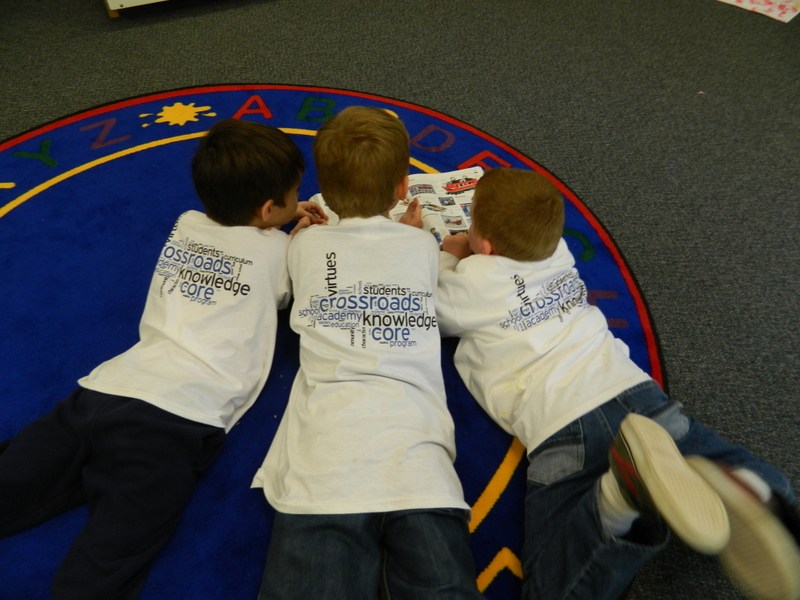
Liz O’Leary
In kindergarten, the students learn that forgiveness is both having enough heart to let go of hurt and making amends with an apology of action. Since young children have a hard time understanding the effects of their actions on other people, it’s appropriate to offer a more concrete solution. Classroom management isn’t just having a calm, safe and constructive environment; it’s also teaching children to self-manage.
I expect there will be hurt feelings at times and children will make mistakes. As I have told my students, it is not the mistake, but how you learn to fix the relationship and restore trust that is the most important. An apology
of action is based on a simple belief that if you make a mess or hurt a relationship, you should fix it. Throughout the school day, I explicitly teach the complex social skill of managing hurt feelings and making amends with the student-generated process of problemsolving in the Responsive Classroom approach. Responsive Classroom is an approach to teaching
and learning, which is based on ten practical strategies that bring together social and academic learning throughout the school day. With an apology of action the students learn how to take responsibility when they hurt someone, how to manage themselves and their relationships, and how to understand the consequences of their actions. In order to help children mend emotional and relationship issues, they need to be taught what to do to make
amends when saying “sorry” isn’t enough. As Sarah Fillion, a veteran teacher in the Responsive Classroom approach, states:
“An apology of action helps children learn to solve problems while giving them a dignified way to rejoin the community. It also helps children see themselves as part of a community whose members need their respect and kindness, and from whom they deserve respect and kindness in return.”
To begin, students learn through modeling and practice how to ask for and make an apology of action that is realistic, respectful, and relevant to the hurtful situation. Sometimes one or both of the children will need some time to calm down and will “take a break” in one of the class rocking chairs so s/he can process information. Then the children speak directly to each other taking turns stating the issues but using only “I-statements” to say why they are upset. They listen and echo or paraphrase what each partner heard the other say. This is a magical step. Since children are so often focused on their own needs or hurts, they sometimes don’t truly listen to the other person. Now they really have to listen to each other in order to echo what their partner said. It is that listening step of an apology of action that helps move children toward understanding their partner’s point of view and hopefully instill greater empathy within the students.
Next, the partner states how he or she feels. Again, the second partner echoes what was said. Thus, showing children that in an apology of action, they’ll have an opportunity to speak. This helps students wait their turn and focus on listening. The process continues until both children feel they have been fully heard.
Lastly, the children propose solutions and together agree on a plan to follow through for next time. This step of apology of action is critical, because I believe young children need a chance to experience themselves as problem-solvers who are able to take responsibility for dealing directly with one another when they’re upset. This process nurtures kindness, consideration for others, respectful assertion of their needs, and cooperation. At the end of apology of action, the children exchange a hug, a high-five or a handshake to show, as one student says, “You’re still friends and I feel happy.” In the kindergarten classroom, apology of action illustrates key elements in the Crossroads Academy touchstone, “Strong Minds, Kind Hearts.”
(Adapted from Responsive Classroom, “Coaching Children in Handling Everyday Conflicts,” by Caltha Crowe, and “Apology of Action and Literacy,” by Sarah Fillion)



